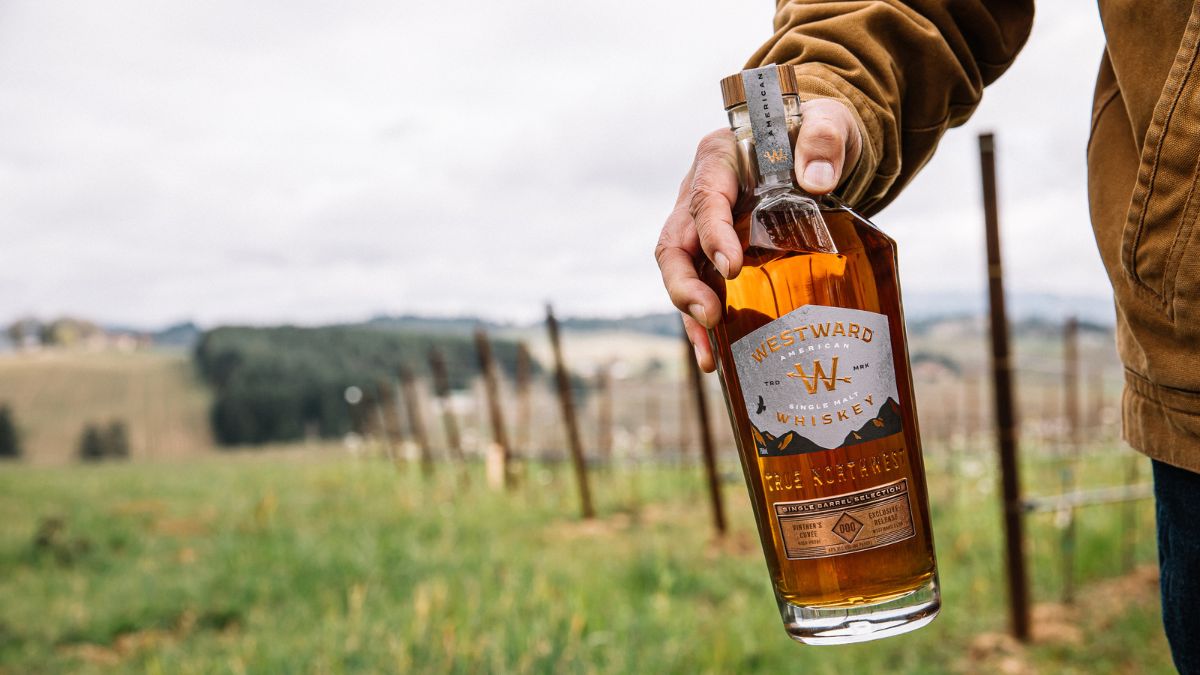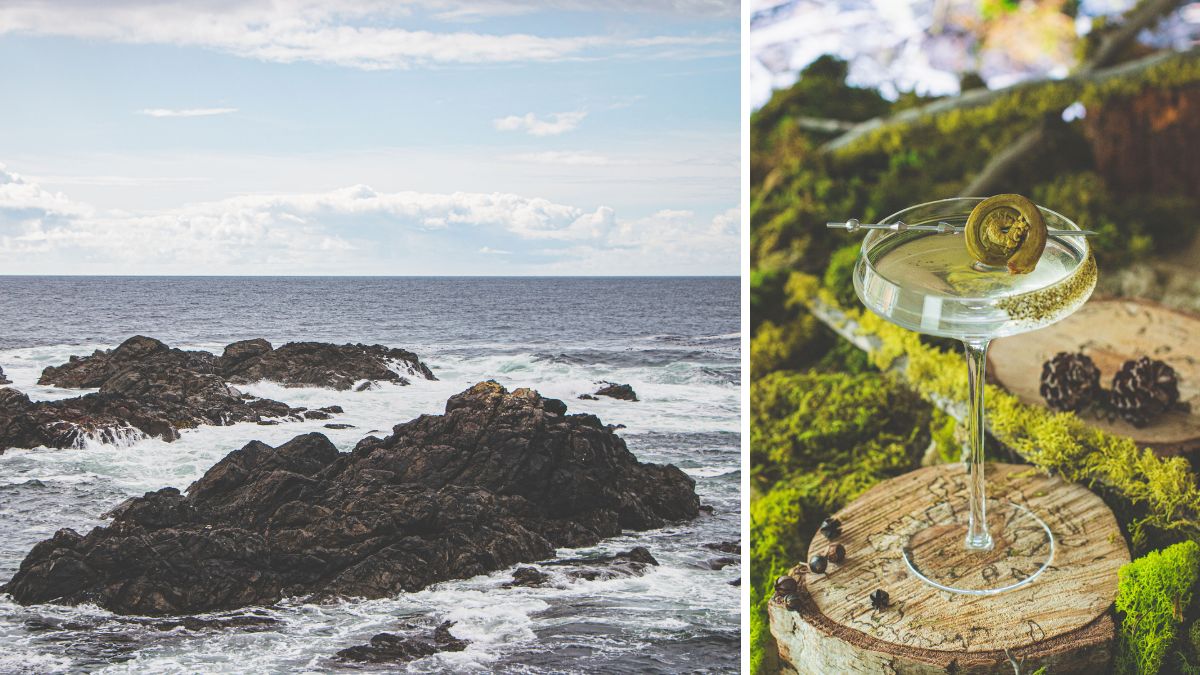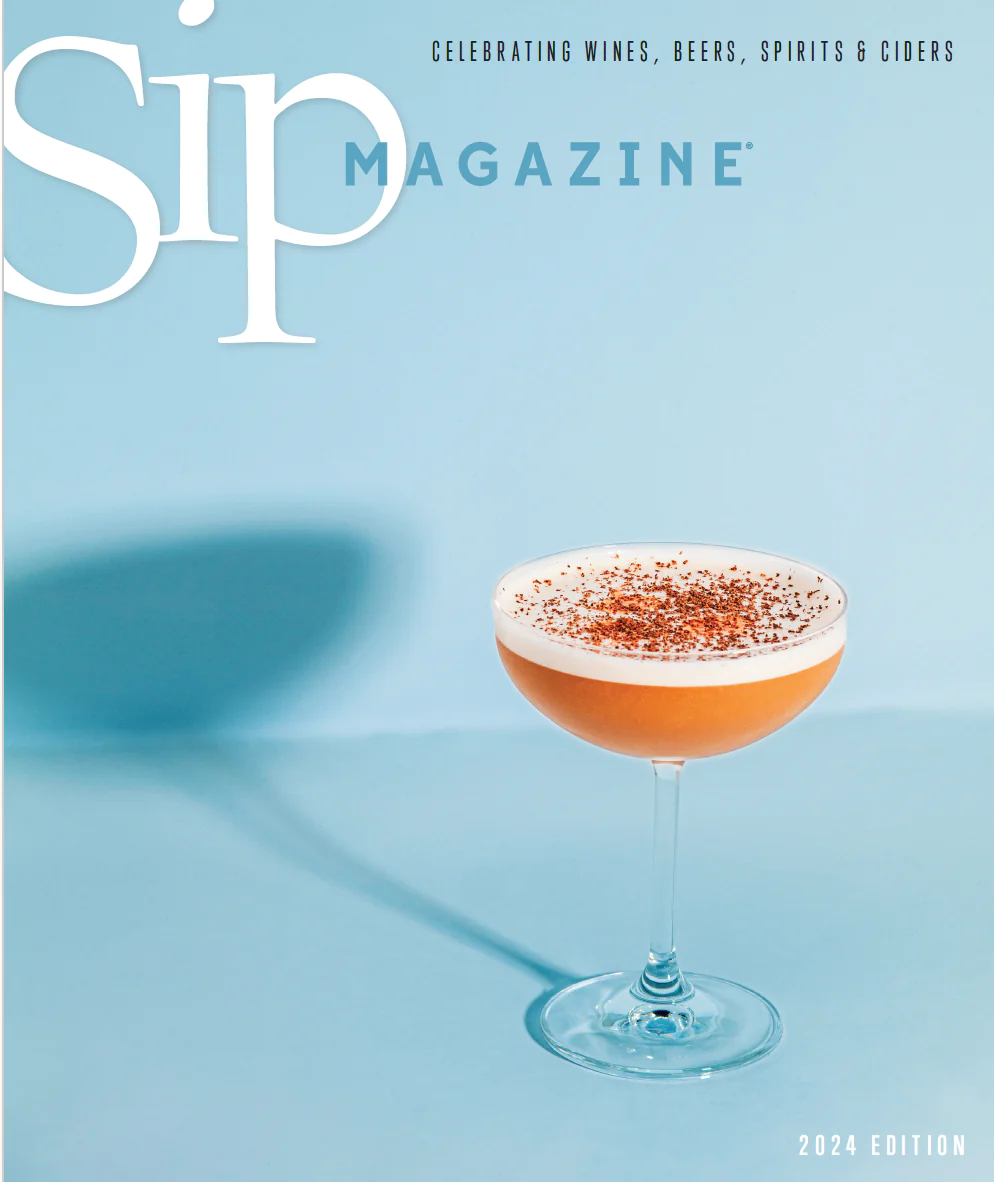Imagine, for a moment, if we were to nominate a Mt. Rushmore of gin-based cocktails.You’d have the negroni, gimlet, martini, martini (again), and the one cocktail even the most preoccupied bartender can’t mess up, the gin and tonic.
A strong argument could be made that the Tom Collins belongs in that granite honorific, too. But did you know that today’s recipe — gin, lemon juice, sugar and seltzer — is a modernization, maybe even a bastardization, of the original recipe?
“The only true way to make a Tom Collins,” says Gompers Distillery co-founder Michael Hart professorially, “is with Old Tom.” Old Tom is essentially the name for barrel-aged gin. It’s not as easily found but it’s the gin that whiskey lovers ought to know. In fact, try subbing Old Tom gin in your next Manhattan or old fashioned and you’ll be in for an herbal treat.
Gompers Distillery is named after Herman Gompers, the grandfather of Jessica Hart, Michael’s wife. Herman and his wife, Debora, were both holocaust survivors who, after World War II, left their native Netherlands for Israel, briefly, before moving to the United States. Herman didn’t live to see his namesake distillery open for business, but he knew Jessica and Michael were formulating what would later become their commercial gin recipes.
Founded in Redmond, Ore., in 2013, Gompers was one of the few producers of Old Tom gin. The style is decidedly Old World, yet so Oregonian, too. For example, in lieu of aging their gin in sherry casks (which was more common), they use Oregon Pinot Noir barrels made of French oak. And of course, Oregon juniper berries as the primary botanical. While some gins list well over a dozen ingredients, Gompers gins primarily use three. Another is Oregon lavender.But the other distinct ingredient is pear, which is probably responsible for its extra smooth taste and texture. Even Gompers’ Navy Strength Gin — it clocks in at 115 proof compared — is confoundingly velvety.
Incidentally, Gompers uses neither a traditional alembic pot still, nor a more industrial column still. Instead, the distillery uses something of a hybrid from Dutch manufacturer iStill. The cutting-edge still is an homage to gin’s roots
Most people think of gin as a British spirit given how prevalent it was in Great Britain once the 18th century rolled around. Since that overlapped the UK’s imperial push, that explains the image of the British colonialists sipping G&Ts from Sydney to Ceylon. (Sailors added lime to protect against scurvy; quinine in tonic water battled malaria.) Incidentally, that’s also where we got navy strength gin, where the proof jumps from 90 to 115. According to Michael Hart, the British Navy discovered that if standard London dry gin seeped from the barrels into the gunpowder, that rendered the explosive too damp to fire. But anything over 114 proof maintained the powder’s combustibility.
But as for how the English discovered gin in the first place, history points back to gin’s Belgian and Dutch roots. The liquor was provided to English soldiers who protected those lands from Spanish invaders at the end of the 16th century. Gin’s antecedent was a drink called genever, or jenever, not exactly modern day gin, but named after its chief flavor all the same: juniper. And since it’s difficult to pronounce — think the guttural first syllable in chutzpah or Chanukkah — the Brits shortened it to gin.
As such, this Oregon distillery named after a Dutchman and employing a Dutch-fabricated still intends to produce the obscure, Dutch-style genever. And when they do, the two most appropriate places to enjoy it would be your home bar — since that’s what led the Harts to notice they didn’t have the ideal gin for their home mixology in the first place — or at Gompers’ speakeasy-inspired tasting room finished with suitable touches from Tiffany lamps, Nick and Nora-style coupe glasses, and some sizzling 1920s jazz spilling from the phonograph.






